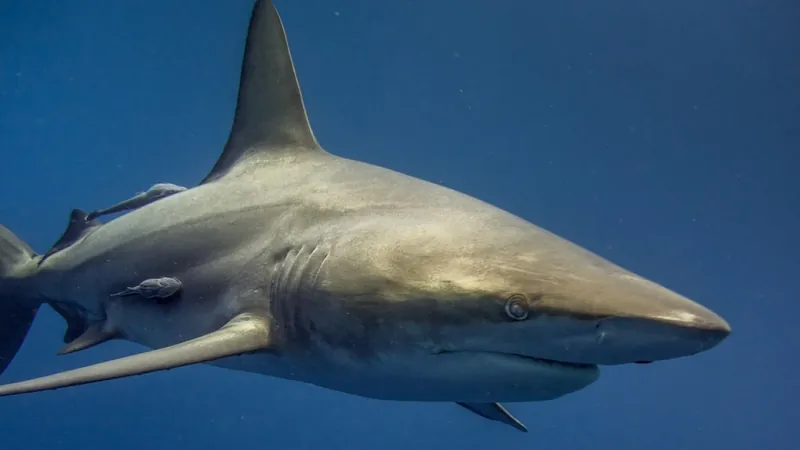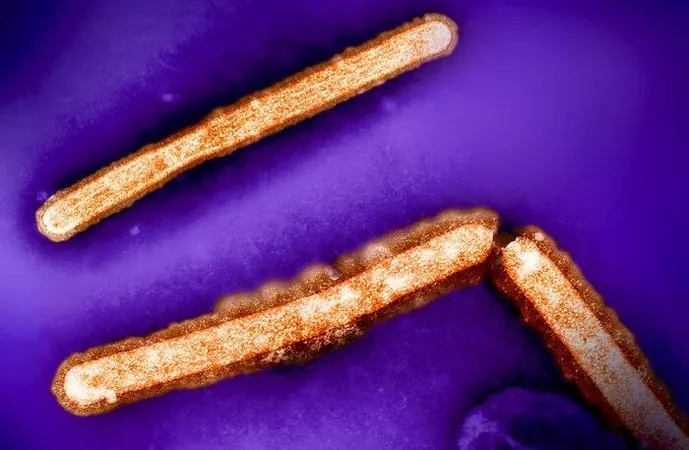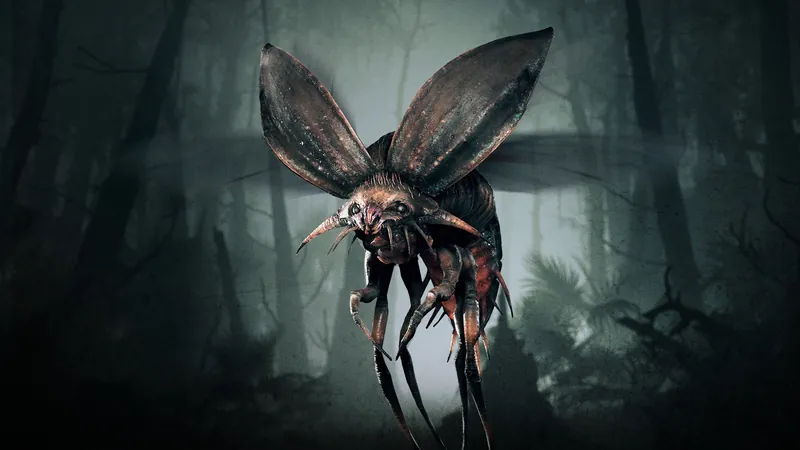
Pregnant Great White Shark Found Dead in Queensland — A Troubling Loss for Conservation Efforts
2024-12-09
Author: Amelia
In a shocking turn of events, a massive female great white shark measuring 18.4 feet (5.6 meters) was discovered dead on a drumline off Tannum Sands, Queensland, Australia, in August. This unfortunate incident marks a grim milestone — the largest white shark caught in Queensland's Shark Control Program since its inception in 1962. Tragically, the shark was pregnant with four pups and passed away before a response team could arrive to release her, as confirmed by a spokesperson from the Queensland Department of Agriculture and Fisheries.
A Significant Blow to Conservation
This incident raises serious concerns within the scientific community. As noted in reports, there are few verified records of white sharks surpassing 21 feet, with the largest confirmed specimen measuring 19.9 feet found off Massachusetts. Researchers had expressed hopes of studying this exceptional specimen, but her untimely death poses a considerable setback for ongoing conservation efforts. Bob Hueter, Chief Scientist at OCEARCH, emphasized that the loss of a breeding female drastically affects genetic diversity and poses challenges to the recovery of white shark populations. Despite response teams typically reaching stranded sharks within 30 minutes, they were unable to save this one in time.
A Call to Action for Vulnerable Species
Great white sharks are classified as vulnerable by the IUCN Red List and are increasingly threatened by issues such as bycatch and overfishing. Alarmingly, the estimated population of breeding adults in the eastern Australasian region stands at only around 750. As apex predators, great whites play a crucial role in maintaining the health and balance of marine ecosystems, making their preservation imperative for oceanic biodiversity.
Leonardo Guida, the Shark Conservation Lead at the Australian Marine Conservation Society, noted that the size of the deceased shark suggests she was likely born in the late 1990s, around the time when white sharks were granted protection in Australia. This highlights the importance of continuing protective measures to ensure the survival of this species.
New Research Opportunities Arise
Despite the tragedy, experts see this situation as a unique chance for scientific advancement. According to Tracey Scott-Holland, samples taken from the deceased shark will enable researchers to delve into significant studies regarding genetics, biology, and environmental contaminants. These insights could potentially shed light on areas like gestation periods and breeding frequencies of great white sharks, which remain largely ambiguous and warrant further exploration.
In conclusion, while the death of this remarkable creature is a heart-wrenching loss for conservationists, it could spark significant research that may ultimately contribute to better understanding and protection of great white sharks for future generations. The loss of such a vital member of the ocean ecosystem acts as a poignant reminder of the delicate balance within marine environments and the urgent need for protective measures for vulnerable species.









 Brasil (PT)
Brasil (PT)
 Canada (EN)
Canada (EN)
 Chile (ES)
Chile (ES)
 España (ES)
España (ES)
 France (FR)
France (FR)
 Hong Kong (EN)
Hong Kong (EN)
 Italia (IT)
Italia (IT)
 日本 (JA)
日本 (JA)
 Magyarország (HU)
Magyarország (HU)
 Norge (NO)
Norge (NO)
 Polska (PL)
Polska (PL)
 Schweiz (DE)
Schweiz (DE)
 Singapore (EN)
Singapore (EN)
 Sverige (SV)
Sverige (SV)
 Suomi (FI)
Suomi (FI)
 Türkiye (TR)
Türkiye (TR)